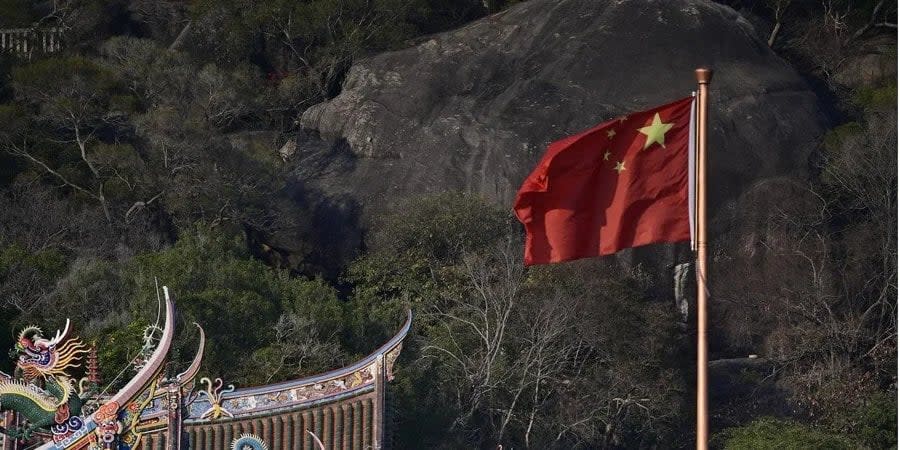China-Central Asia Summit heralds the end of Russian leadership in the region

Read also: EU-China relations will suffer if Beijing does not nudge Moscow towards peace, Borrell says
On May 19-20, China held a summit between themselves and the Central Asian countries in the city of Xi'an. Xi Jinping received each leader of the Central Asian republics during his state visit personally. The summit discussed various issues, from economics and trade to energy and security.
As always, the priority remained in the economic and financial spheres, in which the PRC has achieved significant success over the past 15 years, displacing Russia, which had always been the dominant player. But, of course, China's goal also included restraining the US and the EU, which have long been competing with Chinese companies in the energy market of Central Asia and have recently embarked on financial and economic expansion in the region. Not coincidentally, parallel to the PRC-CA summit, a conference was held in the Kazakh city of Almaty under the auspices of the EU-CA. However, the heads of state of the republics did not go, instead sending heads of government or foreign ministries. Currently, China's trade with Central Asia countries totals $70 billion. In the US, this trade turnover reaches $49 billion, and in Russia - $42 billion, plus remittances from migrant workers.
Read also: Russia passes 200,000 KIA, Russia extends grain deal, China’s diplomat in Europe
During the summit, China offered $3.7 billion of financial assistance for the development of the region, expanded the quota for the import of Central Asian agricultural, dairy, and meat products, and provided support in the field of security and defense. Xi Jinping, in particular, stated that he was prepared to help regional states strengthen their defense capabilities. This is the first time China has overtly bid for dominance in non-economic sectors, essentially promising a new security architecture for Central Asia in which China participates.
Russia has lost exclusive opportunities to influence the post-Soviet space.
For the last twenty years, Russia has been losing the trade and economic competition with China in this region. A certain balance was established between them due to Russia's significant military and political influence over the post-Soviet space. Thus, China and Russia formed a kind of tandem, in which Russia was the "muscle" and China was the investor. However, much has changed recently: The invasion of Ukraine and occupying parts of its territory discredited the Russians, making them too toxic and unpredictable for the Central Asian countries. So, they saw the need to diversify their foreign policies. The political leadership in many of them has also changed. Except for Tajikistan, other political elites or leaders less connected with Vladimir Putin's personal agreements and "chemistry" came to power in Kazakhstan, Turkmenistan, Uzbekistan, and Kyrgyzstan. It was easier for them to pursue a more autonomous foreign policy oriented towards reducing critical dependence on the Kremlin and increasing ties with non-traditional centers of influence such as China, India, the Arab world, Pakistan, Japan, South Korea, Iran, Turkey, and so on.
Read also: China urges foreign embassies to remove signs showing support for Ukraine
The latest China-Central Asia summit showed that this trend of weakening Russia's dominance and influence is now affecting even the spheres where Russia traditionally played the most potent role: security, defense, energy, and politics. Beijing is one of many to pursue participation in these processes. Its decision to strengthen cooperation with Central Asia in security and defense is primarily driven by similar aspirations on the part of the US and their allies within the framework of the global collective West aimed at containing China. But in this context, China's strengthening weakens Russia, which will have to either play on the side of the West against China (which is impossible today because Russia needs China), or come to terms with it and continue to play the role of a junior partner.
Read also: Li Hui’s visit to Zelenskyy: Beijing aims to show “de-escalation” dependence on China, says Klimkin
China regards Central Asia not only as a market for sales and investments but also as one of the critical land logistics hubs connecting China to the European Union, including within the framework of Beijing's global One Belt, One Road initiative. In addition, the region is rich in the energy resources upon which China depends. Moreover, China is now advancing the idea of a multipolar world. In other words, they benefit from maximum regional autonomy in the international relations system since it enables these countries to pursue a more independent foreign policy, which guarantees that no one will restrict them in their relations with China as one of the obvious partners of the region. However, for Russia, they will have to give up some of its influence and accept that Central Asia will never again be under Moscow's control. Therefore, they have to build more or less equal relations based on mutual respect, lack of claims, and consideration of interests, which the Kremlin has never done.
We’re bringing the voice of Ukraine to the world. Support us with a one-time donation, or become a Patron!
Read the original article on The New Voice of Ukraine

